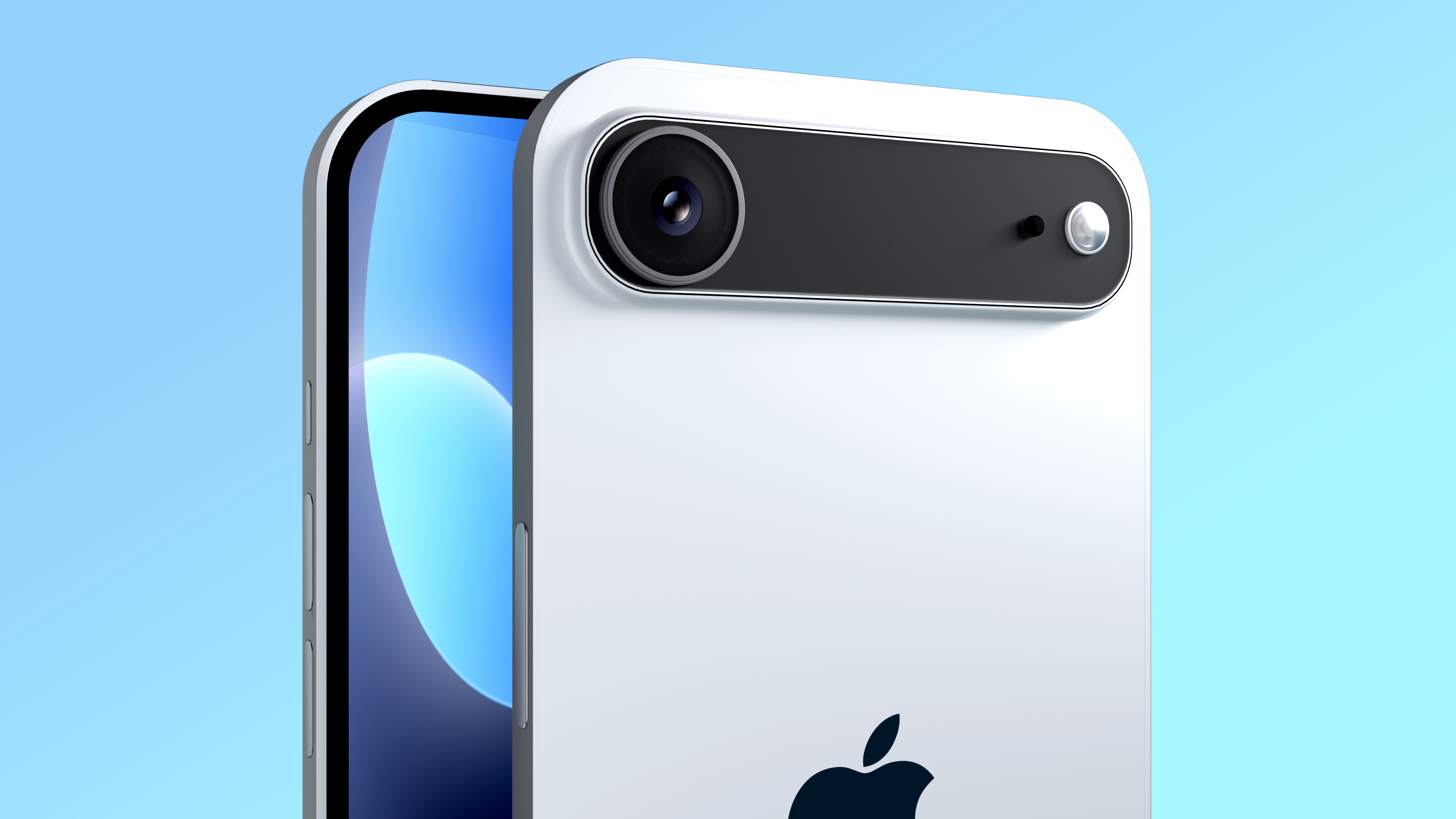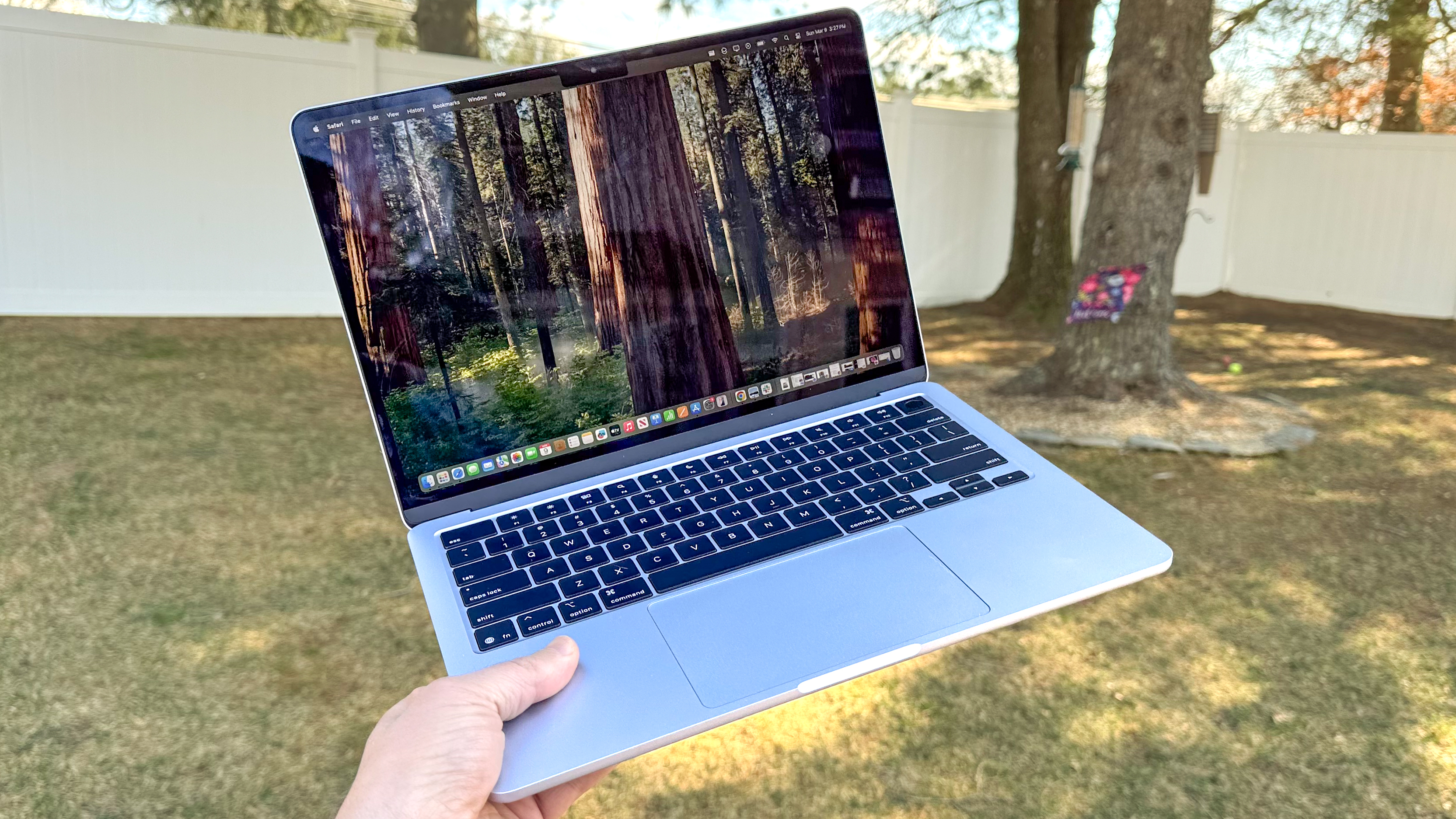iPhone 17 Air just tipped for killer upgrade that could blow away Galaxy S25 Edge
The latest silicon battery tech could be key to a longer-lasting, ultra-thin phone

Here at Tom’s Guide our expert editors are committed to bringing you the best news, reviews and guides to help you stay informed and ahead of the curve!
You are now subscribed
Your newsletter sign-up was successful
Want to add more newsletters?

Daily (Mon-Sun)
Tom's Guide Daily
Sign up to get the latest updates on all of your favorite content! From cutting-edge tech news and the hottest streaming buzz to unbeatable deals on the best products and in-depth reviews, we’ve got you covered.

Weekly on Thursday
Tom's AI Guide
Be AI savvy with your weekly newsletter summing up all the biggest AI news you need to know. Plus, analysis from our AI editor and tips on how to use the latest AI tools!

Weekly on Friday
Tom's iGuide
Unlock the vast world of Apple news straight to your inbox. With coverage on everything from exciting product launches to essential software updates, this is your go-to source for the latest updates on all the best Apple content.

Weekly on Monday
Tom's Streaming Guide
Our weekly newsletter is expertly crafted to immerse you in the world of streaming. Stay updated on the latest releases and our top recommendations across your favorite streaming platforms.
Join the club
Get full access to premium articles, exclusive features and a growing list of member rewards.
Samsung and Apple are locked in a race to bring us the slimmest smartphone possible. But one serious compromise of a thinner profile is a similarly smaller battery, as we've seen with the Galaxy S25 Edge.
Apple may have a fix for that, with the upcoming ultra-thin iPhone 17 Air reportedly sporting new silicon batteries that pack 15% more energy into the same space compared to existing smartphone batteries.
According to a Bloomberg report, Apple and Samsung battery supplier TDK has accelerated its production timeline for its new generation of silicon-anode batteries. Shipments are now set to begin by the end of June, a few months ahead of its earlier window of September.
"We've made good progress, and we're shipping them very soon," TDK Chief Executive Officer Noboru Saito said. "Some handset makers might be able to use the new battery in their product one generation early." He added that this will “give smartphone makers enough time to use these cells in thinner models launching this year.”
Meaning that the iPhone 17 Air, which is expected to be announced in September, could be the first Apple smartphone to feature TDK's third iteration of silicon-anode battery technology. Apple was previously rumored to adopt silicon-anode batteries for the second-generation iPhone Air, but with this new timeline, it looks like the first-generation model could get those improvements in battery life instead.
Chinese smartphone manufacturers have already begun upgrading their flagships to silicon batteries, which tend to last significantly longer than their American competitors.
TDK's silicon-anode batteries store about 15% more energy in the same physical space as conventional graphite-based battery packs. The extra density is possible because silicon can hold more lithium ions per gram than graphite, letting brands squeeze longer-lasting batteries into less real estate. This advancement could prove essential to maintaining a decent battery life in ultra-thin phones.
Get instant access to breaking news, the hottest reviews, great deals and helpful tips.
That's been one of the biggest drawbacks of the Galaxy S25 Edge, Samsung's thinnest phone to date. Measuring just 5.8mm thick, it lasted 12 hours and 38 minutes on a full charge in our Galaxy S25 Edge battery tests, far below the time recorded by the Galaxy S25 Ultra. With the iPhone 17 Air rumored to be even thinner at 5.5mm, Apple has its work cut out for it.
Though Apple could have another trick up its sleeve for longer battery life with the iPhone 17 Air: artificial intelligence. Bloomberg's Mark Gurman previously reported that the company has an AI-powered management mode in the works for iOS 19, which will "analyze how a person uses their device and make adjustments to conserve energy." To achieve this, Apple's "using battery data it has collected from users’ devices to understand trends and make predictions for when it should lower the power draw of certain applications or features."
Between AI-powered battery optimization and the latest-and-greatest silicon battery, the iPhone 17 Air seems primed to leave the Galaxy S25 Edge in the dust when it comes to holding a charge.
More from Tom's Guide
- iPhone 17 price hikes — new report claims Apple could charge more this fall
- Galaxy S25 Edge battery life tested — it's even worse than we thought
- The iPhone 17 Air has nothing to worry about now that we've seen the Samsung Galaxy S25 Edge — here’s why

Alyse Stanley is a news editor at Tom’s Guide, overseeing weekend coverage and writing about the latest in tech, gaming, and entertainment. Before Tom’s Guide, Alyse worked as an editor for the Washington Post’s sunsetted video game section, Launcher. She previously led Gizmodo’s weekend news desk and has written game reviews and features for outlets like Polygon, Unwinnable, and Rock, Paper, Shotgun. She’s a big fan of horror movies, cartoons, and roller skating. She's also a puzzle fan and can often be found contributing to the NYT Connections coverage on Tom's Guide
You must confirm your public display name before commenting
Please logout and then login again, you will then be prompted to enter your display name.
 Club Benefits
Club Benefits











